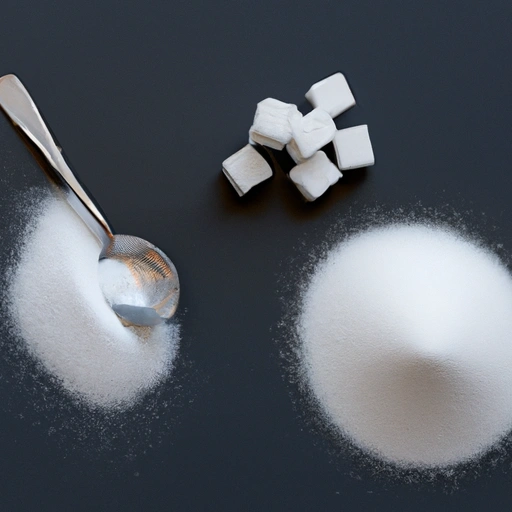Sweetener
Description

Sweeteners are a diverse group of food additives used to impart sweetness in food and beverages. They come in various forms, such as granulated, liquid, or powder, and can be derived from natural sources or created synthetically. Sweeteners are used as sugar substitutes for those looking to reduce calorie intake or to avoid the effects of sugar on health or dental hygiene. They vary widely in sweetness intensity, caloric content, and taste profile.
Common uses
Sweeteners are commonly used in a variety of products including soft drinks, baked goods, candy, jams, jellies, dairy products, and as table-top sweeteners. They are also found in some pharmaceuticals and oral hygiene products like toothpaste and mouthwashes to enhance flavor without contributing to tooth decay.
Nutritional value
Calories
Caloric content varies among sweeteners. Sugar has about 4 calories per gram, while many artificial sweeteners have little to no calories. Natural sweeteners like honey and maple syrup have caloric contents similar to sugar.
Protein
Sweeteners typically do not contain protein.
Fat
Sweeteners are generally fat-free.
Carbohydrates
While sugar and natural sweeteners contain carbohydrates, most artificial sweeteners have no or negligible carbohydrate content.
Vitamins
Most sweeteners are not significant sources of vitamins, though some natural sweeteners may contain trace amounts of B vitamins.
Minerals
Natural sweeteners like honey and maple syrup may contain minerals such as calcium, potassium, and iron in small amounts.
Health benefits
Using low-calorie sweeteners in place of sugar can aid in weight management and help maintain blood sugar levels for individuals with diabetes. They may also contribute to better dental health by reducing the risk of cavities.
Potential risks
Overconsumption of sweeteners, especially artificial ones, may lead to health risks such as digestive discomfort, potential negative effects on gut bacteria, and in some cases, could be linked to an increased risk of certain diseases. It is important to consume them in moderation.
Common recipes
Sweeteners are used in recipes for cakes, cookies, pies, and other desserts, as well as in beverages like coffee, tea, and smoothies.
Cooking methods
Sweeteners can be incorporated into recipes by stirring, blending, or baking, depending on the recipe requirements and the form of the sweetener used.
Pairing with other ingredients
Sweeteners pair well with a variety of flavors, including fruits, chocolate, vanilla, and spices like cinnamon and nutmeg.
Summary
Sweeteners are versatile ingredients that provide sweetness without the added calories of regular sugar. They are widely used in both cooking and commercial food production. While they offer benefits such as weight management and dental health, it's important to be mindful of the type and quantity of sweetener used in order to avoid potential health risks. With a variety of sweeteners available on the market, individuals can choose the one that best fits their dietary needs and taste preferences.